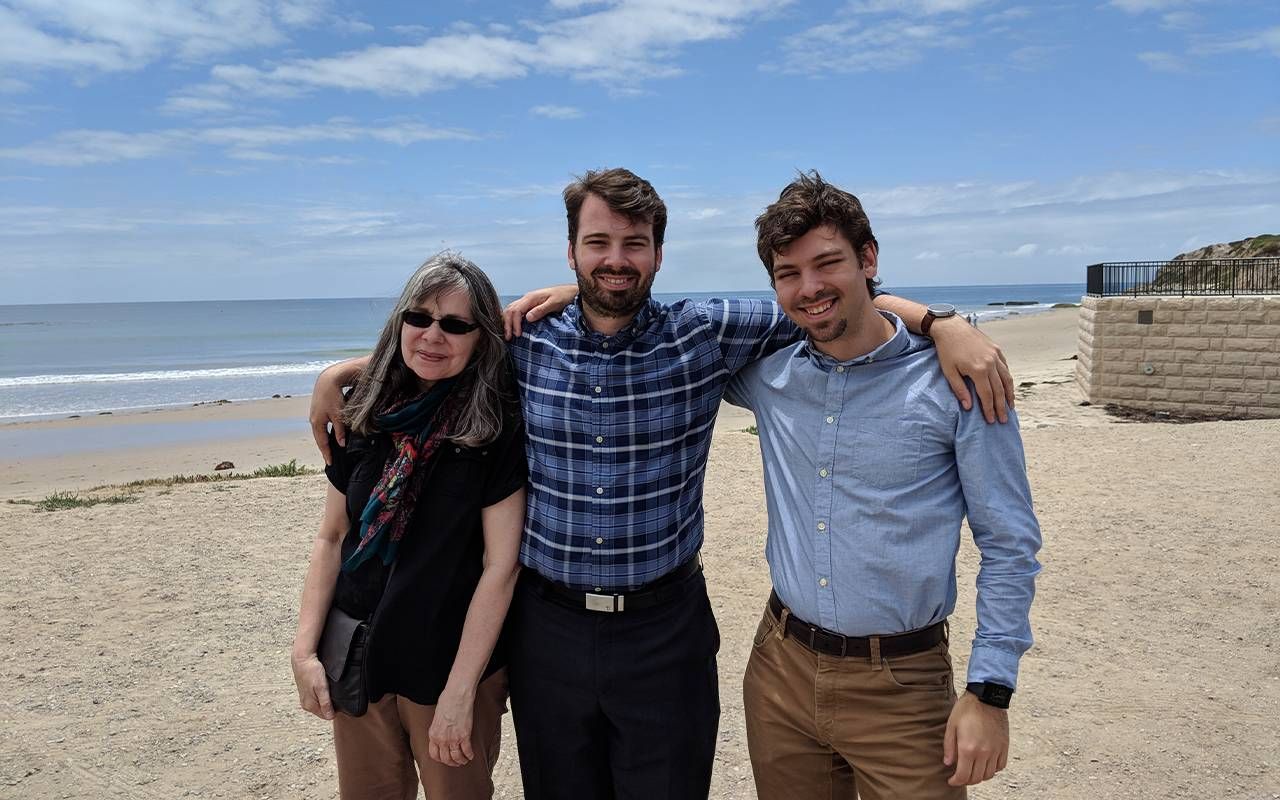Consume Less, Enjoy More
A discipline called voluntary simplicity can lead you to 'a way of life that is outwardly simple, inwardly rich'
Editor’s note: This primer on voluntary simplicity is the first of a three-part series about adopting a low-consumption lifestyle. Part Two will be about consciously realigning your values. Part Three will provide concrete steps toward living those values.
In 1967, I wrote a letter to (then) President Lyndon B. Johnson. I was excited about his "War on Poverty" program — but some goings-on at 1600 Pennsylvania Avenue didn't sit well with me.
His wife, known by her nickname "Lady Bird," was in the process of buying china for the White House — to the tune of $80,000 (equivalent to more than $700,000 today). How could the country take LBJ's poverty reduction rhetoric seriously when he was spending that kind of money on, you know, dishes?

I asked the president to re-think the purchase of the Tiffany table settings — but I didn't stop there. (I was 13 and bursting with hubris.) I encouraged him to drive a (fuel-efficient, low-cost) Volkswagen Beetle and suggested that the First Lady could sew and mend his clothing (where was my budding feminism?!). I think I also mentioned renting out the Lincoln Bedroom.
"Voluntary simplicity is the choice to earn, work and spend less than one might otherwise — that is, to live contrary to the consumer capitalistic lifestyle."
Fast forward more than half a century. I am still, at heart, that young girl who believed a simple lifestyle can make a difference. Along the way, I discovered that this practice — "living simply that others may simply live," according to Gandhi — had a name.
It's called voluntary simplicity.
What Is Voluntary Simplicity?
The social philosopher Richard Gregg coined the term "voluntary simplicity" in 1936. Duane Elgin, one of the movement's current advocates, describes it as "a way of life that is outwardly simple, inwardly rich." Another advocate, Tim Kasser, elaborates: "Voluntary simplicity is the choice to earn, work and spend less than one might otherwise — that is, to live contrary to the consumer capitalistic lifestyle."
My definition is this: Voluntary simplicity is the opposite of materialism. Its adherents focus on those concerns (people, nature, causes, ideas) that truly matter to them rather than operating on autopilot and joining the "all you need is more" American consumer culture. Because they buy less, they also spend less. That, in turn, often means working fewer hours or retiring early.
By practicing simplicity, you free up time, money and energy to pursue your authentic, nonmaterialistic goals, such as spending more time with family and friends, helping the community, embracing nature — and, ultimately, making the world a better place.
It's a framework, in essence, for truly living your values.
Seattle resident John de Graaf, a documentary filmmaker and author, is an example of this concept in action. The 76-year-old's most cherished values include social justice, the environment, lifelong learning, creativity and joy. He says that voluntary simplicity has helped him to live those values.
"I've spent my life making films about things I believe in and, as an activist, starting and running organizations that I believe in with very small budgets," he says. "I would not be able to do that if I was a consumerist."
What Voluntary Simplicity Is NOT
Voluntary simplicity is not a one-size-fits-all set of rules. There are as many ways of living simply as there are individuals embracing it. You can find extreme expressions of voluntary simplicity — like the fellow who opted to live in a 33 square foot dumpster (granted, it was a really nice dumpster!) — but ultimately it's about intentionally determining your definition of "enough."
It also is not about sacrifice or deprivation. Advocates use the adjective "voluntary" to emphasize that they choose a scaled down, nonmaterialistic existence — in contrast with those who experience involuntary simplicity (also known as poverty). People who opt for this lifestyle often end up happier than their consumerist counterparts, as we'll see in the benefits section below.
Voluntary simplicity is not a fad. It is a lifestyle that religious, political and moral leaders — from Buddha to St. Francis to Gandhi — have embraced for centuries. Living simply is here to stay.
'Stuff' Isn't the Point
It's also not about being cheap. Some of the most generous people I've ever met are practitioners. They may not buy you a bespoke cashmere sweater for your birthday but they will gladly contribute their time and money to a good cause — and show up with a casserole when you're feeling down.
It's not necessarily about a Zen, uncluttered life. While Marie Kondo has popularized this ideal in her book, "The Life-Changing Magic of Tidying Up," remember she also has an online store hawking everything from $240 pajamas to $110 incense holders.
I must say, the only things I own that truly "spark joy" for me (to use Kondo's signature phrase) are those associated with some important person in my life: my children, my parents, other loved ones. And I can't buy them — at Kondo's store or anywhere else.
"I practice self-defined enoughness."
Voluntary simplicity adherents are not off-the-grid, hippie Luddites, but they do select their technology thoughtfully. Not all technological "advances" (I'm looking at you, social media) are balm for the soul. And rather than retreating from the world, it's about engaging with the world — but with a different set of values from the mainstream.
Finally, it's not even always called voluntary simplicity. Los Angeles resident Carol Holst was an early adopter of the "less is more" lifestyle. Holst, 73, now says, "I practice self-defined enoughness." Other labels include simple living, minimalism, green living, essentialism and post-consumerism. While these approaches may prioritize different aspects of simplicity, they're all about getting more out of life by consuming less.
The Benefits of Voluntary Simplicity
The environmentalist and author Ernest Callenbach posited what he called the Green Triangle, the points of which are environment, health and money. He believed that what benefits one of these three also typically benefits the other two. Leaving the car at home and walking to the store, for example, is good for the environment, better for your health and saves you money.
Those practicing simplicity think Callenbach's triangle could morph into a pentagon, an octagon — or beyond.
Here are some of the benefits of voluntarily simplicity:
Environmental. When we consume less, we use less of the Earth's resources. And, by one estimate, it would take more than five Earths to sustain the world's population if everyone lived like Americans.
Economic. If you consume less, you will spend less. If you spend less, you can save more.
Time. By saving more, you can "buy" more time, more freedom.
"Voluntary simplicity has allowed me to have the career and work I want — making documentaries — which is a hard way to make a living."
With a low-consumption lifestyle, you can gain time in a lot of ways. For many people the ultimate goal is early retirement. Indeed, the save-and-invest FIRE movement — the acronym stands for Financial Independence Retire Early — has that aim in its title.
But freeing up time can manifest in other ways. Simple-living practitioners may opt to work part-time or choose jobs that pay less but are much more meaningful. "Voluntary simplicity has allowed me to have the career and work I want — making documentaries — which is a hard way to make a living," says De Graaf.
Happiness, Personal Growth and More. Kasser, a professor emeritus of psychology at Knox College in Galesburg, Illinois, devoted his academic life to studying the connections between materialism and well-being. His (and others') research found that materialism (remember, that is the opposite of voluntary simplicity) is associated with a host of negative outcomes, including more debt, prejudice and narcissism, lower-quality relationships and less empathy.
Research also found that people who practice voluntary simplicity are more likely to embrace nonmaterialistic values than mainstream Americans; that, in turn, is associated with higher levels of well-being and happiness.
"This," says Kasser, "is why voluntary simplicity is so promising."


